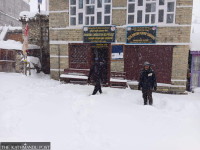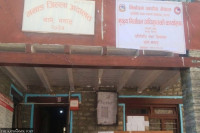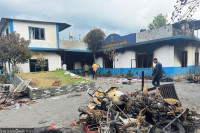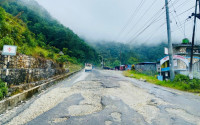Gandaki Province
Schools in Baglung find it difficult to implement learning facilitation directive
It is impossible to reach every settlement in the villages to conduct classes for students, educators say.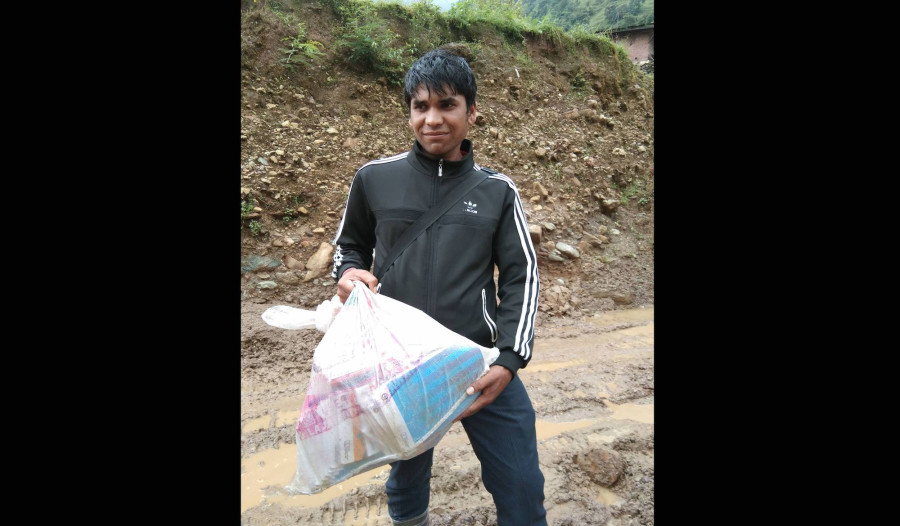
Prakash Baral
The government about a week ago handed over the responsibility to decide on school resumption to the local units on the basis of Learning Facilitation Directive 2077 (2020). Many local units in Baglung instructed schools to resume classes for students in settlements and through the use of communication technology. However, a majority of public schools in the district are finding it difficult to execute the directive.
The Ministry of Education issued a directive to the local units to resume classes from September 17. The directive aims to resume classes through alternative mediums and allow schools to conduct classes in local settlements.
However, educators in the district say that running classes in the settlements as stipulated by the directive is not possible since they won’t be able to reach every student.
“We have 1,400 students in our school. We will not be able to reach every settlement and teach every student,” said Shantamani Dhakal, the headmaster of Bidhyamandir Secondary School in Balgung bazaar, the district headquarters. “To ensure that every student attends classes, we have to send teachers to their settlements but that is not possible for us to do.”
According to Dhakal, the school has many students from nearby villages and it is not possible to send teachers to conduct classes in every settlement.
“No one stands to benefit from this directive,” he said.
Bidhyamandir also tried to conduct classes for grades eight to 12 through a virtual medium but the attendance was low, says Dhakal. “We started classes through the Zoom video conferencing app but most of the students do not have internet facilities. Many parents have begun to complain.”
Out of 88 schools in Baglung Municipality, only two dozen schools have been able to follow the directive and run classes in various settlements of the municipality.
“We received the directive from the Ministry of Education a few days ago and we have also notified schools. But it is easier said than done,” said Dandapani Sharma, the municipal education officer. “Most of the students here are children of daily wage workers and they moved away because of the pandemic. So to get these students to come to class is very difficult in the current situation. We have also been instructed to conduct the half-yearly examination after two months but it does not seem possible with so many students missing classes.”
In Dhorpatan Municipality, students from remote settlements come to Burtibang to attend school. It is not possible for these schools to conduct classes in remote settlements, says Dhan Prasad Pokharel, the municipal education officer.
“Most of the students were from villages and they left for their home in light of the pandemic. Since most schools have a limited number of teachers, they are unable to send teachers to remote villages to conduct classes,” he said.
Yam Bahadur Kayat, the headmaster at Gyanodaya Secondary School in Ward No. 8 of Dhorpatan, said, “Currently, most of our students are with their parents in the highlands to graze cattle. We have started conducting classes but the attendance rate is just 25 percent.”
Jaimani Municipality is one of the few settlements in the district that has successfully started running settlement classes. Khem Prasad Acharya, the municipal education officer, said, “We have started running classes by forming student groups in settlements. We will be able to continue doing so.”
A dozen schools in the district had started running settlement classes since June. Shiva Secondary School at Kandebas in Ward No. 8 of Galkot Municipality, Tribhuvan Secondary School of Badigad Rural Municipality Ward No. 2 and Dhara Secondary School in Kathekhola Rural Municipality Ward No. 4 are some of the schools that had run settlement classes.




 21.12°C Kathmandu
21.12°C Kathmandu.jpg)
